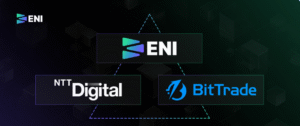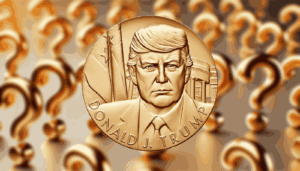
Metaverse Governance
Introduction
The Metaverse is a virtual world created by the convergence of physical and digital environments, and it has the potential to transform the way we interact with each other and the world around us. However, with this potential comes the need for proper governance to ensure a fair and equitable digital society. In this article, we will explore the importance of Metaverse governance and how it can be achieved.
What is Metaverse Governance?
Metaverse Governance refers to the rules and regulations that govern the use and development of the Metaverse. It includes the governance of virtual assets, virtual identity, virtual currencies, and virtual land. The purpose of Metaverse governance is to ensure a fair and equitable digital society where users are protected and have access to equal opportunities.
The Need for Metaverse Governance
As the Metaverse continues to evolve and grow, there is a need for proper governance to ensure that it is used in a fair and equitable manner. Without proper governance, there is a risk that the Metaverse could become a platform for abuse and exploitation. For example, there could be issues around virtual identity theft, cyberbullying, and the exploitation of virtual assets and currencies.
Additionally, the Metaverse has the potential to become a significant economic force, and without proper governance, there is a risk that it could become dominated by a few powerful players, leading to inequalities in wealth and power.
Principles of Metaverse Governance
Metaverse Governance should be guided by the following principles:
Transparency and Accountability
The rules and regulations that govern the Metaverse should be transparent and accountable to the users. Users should have a say in the governance process, and there should be mechanisms in place to hold governance bodies accountable.
Inclusivity and Diversity
Metaverse Governance should be inclusive and diverse, representing the interests of all users. Governance bodies should be diverse, including representatives from different backgrounds and communities.
Protection of User Rights
Metaverse Governance should protect the rights of users, including the right to privacy, freedom of expression, and the right to own and control their virtual assets and identity.
Innovation and Creativity
Metaverse Governance should encourage innovation and creativity, while also ensuring that the Metaverse is used in a responsible and ethical manner.
Achieving Metaverse Governance
Achieving proper Metaverse Governance requires a collaborative effort between various stakeholders, including users, developers, and governance bodies. Here are a few steps that can be taken to achieve proper Metaverse Governance:
Developing Governance Frameworks
Developing governance frameworks that are transparent and accountable is essential. Governance frameworks should be developed in consultation with users and should reflect the principles of Metaverse Governance.
Implementing Standards
Implementing standards for virtual assets, virtual identity, and virtual currencies is essential to ensure that the Metaverse is used in a fair and equitable manner. Standards should be developed in consultation with users and should be transparent and accountable.
Encouraging User Participation
Encouraging user participation in the governance process is essential. Users should have a say in the governance process and should be able to hold governance bodies accountable.
Challenges and Considerations
While the principles and steps outlined above provide a framework for achieving proper Metaverse Governance, there are also several challenges and considerations that need to be addressed.
Jurisdictional Issues
The Metaverse is a global platform, and as such, there are jurisdictional issues that need to be addressed. Different countries have different laws and regulations, and there is a need to ensure that Metaverse Governance is compliant with these laws and regulations.
Technical Complexity
The Metaverse is a technically complex platform, and as such, there are technical challenges that need to be addressed. For example, ensuring the security and integrity of virtual assets and currencies can be challenging, and there is a need for technical standards and protocols to be developed.
Cultural Considerations
The Metaverse is a platform that is used by people from different cultures and backgrounds, and as such, there are cultural considerations that need to be addressed. For example, different cultures may have different views on privacy and freedom of expression, and there is a need to ensure that Metaverse Governance reflects these cultural differences.
Ethical Considerations
The Metaverse has the potential to be used in ways that are unethical, such as for cyberbullying or the exploitation of virtual assets and currencies. There is a need to ensure that Metaverse Governance is guided by ethical considerations, and that users are protected from these types of activities.
Future of Metaverse Governance
The Metaverse is still in its early stages of development, and as such, the future of Metaverse Governance is still uncertain. However, there are several trends and developments that are shaping the future of Metaverse Governance.
Decentralization
Decentralization is a growing trend in the Metaverse, with many developers and users advocating for decentralized governance models. Decentralized governance models allow for more transparency and accountability, and they also give users more control over the platform.
Interoperability
Interoperability is another trend in the Metaverse that is shaping the future of Metaverse Governance. Interoperability refers to the ability of different virtual worlds and platforms to communicate with each other. This allows for the creation of a unified Metaverse, where users can seamlessly move between different virtual worlds and platforms.
Artificial Intelligence
Artificial Intelligence (AI) is another development that is shaping the future of Metaverse Governance. AI can be used to automate certain governance processes, such as the enforcement of rules and regulations, and it can also be used to analyze user data to identify potential issues and risks.
Conclusion
Proper Metaverse Governance is essential to ensure a fair and equitable digital society. It requires a collaborative effort between various stakeholders, including users, developers, and governance bodies. By developing transparent and accountable governance frameworks, implementing standards, and encouraging user participation, we can ensure that the Metaverse is used in a responsible and ethical manner.
I have worked in the cryptocurrency industry for over 5 years and have written numerous articles on the subject. I am well-versed in all aspects of cryptocurrencies and blockchain technology, and am an expert in the field.









